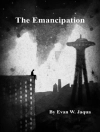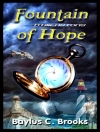In ‘Deserted, ‘ Edward Bellamy explores the themes of isolation and societal decay through a thought-provoking narrative set in a dystopian future. The literary style employs vivid imagery and an analytical tone, juxtaposing the protagonist’s internal struggles with the external challenges of a desolate world. Bellamy intricately weaves philosophical discourse on social justice and economic disparity, fitting within the broader context of the late 19th-century concern for the future of American society, particularly in response to the Industrial Revolution’s consequences. Edward Bellamy, an American author and social activist, gained prominence for his utopian views, most famously articulated in his earlier work, ‘Looking Backward.’ His keen insights into social structures and economic systems heavily influenced his writing of ‘Deserted.’ Personal experiences and the socio-political climate of his time, coupled with his visionary ideals, propelled him to address the consequences of capitalism and the necessity of societal reform. I highly recommend ‘Deserted’ to readers who appreciate speculative fiction grounded in socio-political critique. Bellamy’s unique perspective invites readers to reflect on contemporary issues and consider the implications of abandoning social responsibility. This compelling narrative offers both a cautionary tale and a clarion call for renewed communal values.
Over de auteur
Edward Bellamy (1850–1898) was a renowned American author, journalist, and social reformer, famed for his advocacy for a utopian socialist society. A foremost figure in utopian literature, his influence extended into the political sphere, notably inspiring the formation of ‘Nationalist Clubs’ aimed at realizing his vision of a better society. Although ‘Deserted’ is less renowned than some of his major works, it remains a notable entry in his literary oeuvre. Bellamy’s most celebrated work, ‘Looking Backward: 2000-1887, ‘ published in 1888, is a seminal text in utopian fiction—it envisions a futuristic world of the year 2000 where a harmonious and technologically advanced society has eradicated social issues and economic disparity. This novel not only garnered widespread attention, shaping public discourse, but also influenced subsequent literature within the genre. Bellamy’s literary style is characterized by his imaginative projection of an ideal society, coupled with a strong critique of the social and economic inequalities of his time. Through his profound prose, Bellamy sought to stir the consciences of his contemporaries and advocate for a transformation towards a more egalitarian social order. His cumulative works bear testimony to his intellectual depth and his unwavering belief in the potential for societal improvement through cooperative socialism. Edward Bellamy’s legacy endures in the continuous exploration of utopian ideals and social justice in literature and beyond.












